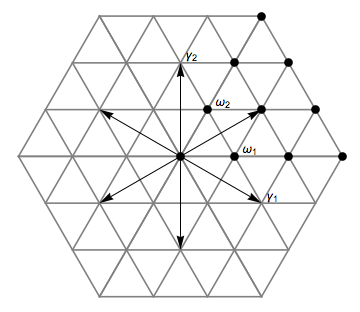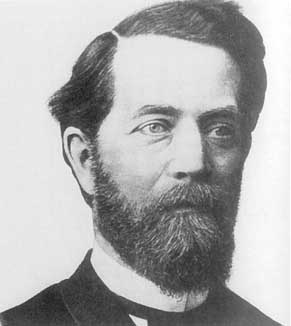|
Kazimierz Urbanik
Kazimierz Urbanik (February 5, 1930 – May 29, 2005) was a prominent member of the Polish School of Mathematics. He founded the journal ''Probability and Mathematical Statistics'' and served as rector of the University of Wrocław. Early life and education Urbanik was born in Krzemieniec and studied at the lyceum there. During World War II the town came under Soviet control, and was annexed by Ukraine; after the war, Urbanik's family moved to Brzeg, which remained Polish. Beginning in 1948, Urbanik studied mathematics and physics at the University of Wrocław, where he was mentored by Hugo Steinhaus and Edward Marczewski. He completed a degree in 1952, and began teaching at the university while continuing his studies under Marczewski, researching general topology, measure theory, and probability theory. He completed his doctorate in 1956, and his habilitation in 1957.. Academic career Urbanik began teaching at the University of Wrocław in 1956. By 1960,he was promoted to profes ... [...More Info...] [...Related Items...] OR: [Wikipedia] [Google] [Baidu] |
Krzemieniec, Poland
Kremenets ( uk, Крем'янець, Кременець, translit. ''Kremianets'', ''Kremenets''; pl, Krzemieniec; yi, קרעמעניץ, Kremenits) is a city in Ternopil Oblast (province) of western Ukraine. It is the administrative center of the Kremenets Raion (district), and lies 18 km north-east of the great Pochayiv Monastery. The city is situated in the historic region of Volhynia. It hosts the administration of Kremenets urban hromada, one of the hromadas of Ukraine. Population: History According to some sources the Kremenets fortress was built in the 8th or 9th century, and later became a part of Kievan Rus'. The first documented reference to the fortress is given in a Polish encyclopedic dictionary written in 1064. The first reference to Kremenets in Old Slavic literature dates from 1226 when the city's ruler, Mstislav the Bold, defeated the Hungarian army of King Andrew II nearby. During the Mongol invasion of Rus in 1240–1241, Kremenets was one of few c ... [...More Info...] [...Related Items...] OR: [Wikipedia] [Google] [Baidu] |
Brzeg
Brzeg (; Latin: ''Alta Ripa'', German language, German: ''Brieg'', Silesian German: ''Brigg'', , ) is a town in southwestern Poland with 34,778 inhabitants (December 2021) and the capital of Brzeg County. It is situated in Silesia in the Opole Voivodeship on the left bank of the Oder river. The town of Brzeg was first mentioned as a trading and fishing settlement in the year 1234. In 1248, Silesian Duke Henry III the White granted the settlement Magdeburg town rights and by the late 13th century the city became fortified. Sometimes referred to as “the garden town”, the town's size greatly expanded after the construction of dwelling houses which were located on the city outskirts. From the early 14th to late 17th centuries, the town was ruled by the Piast dynasty as fiefs of the Bohemian Crown within the Holy Roman Empire. Later, as the result of the Silesian Wars, the town became Prussian. After the border shifts of 1945, the Flight and expulsion of Germans from Poland during ... [...More Info...] [...Related Items...] OR: [Wikipedia] [Google] [Baidu] |
Functional Analysis
Functional analysis is a branch of mathematical analysis, the core of which is formed by the study of vector spaces endowed with some kind of limit-related structure (e.g. inner product, norm, topology, etc.) and the linear functions defined on these spaces and respecting these structures in a suitable sense. The historical roots of functional analysis lie in the study of spaces of functions and the formulation of properties of transformations of functions such as the Fourier transform as transformations defining continuous, unitary etc. operators between function spaces. This point of view turned out to be particularly useful for the study of differential and integral equations. The usage of the word '' functional'' as a noun goes back to the calculus of variations, implying a function whose argument is a function. The term was first used in Hadamard's 1910 book on that subject. However, the general concept of a functional had previously been introduced in 1887 by the ... [...More Info...] [...Related Items...] OR: [Wikipedia] [Google] [Baidu] |
Universal Algebra
Universal algebra (sometimes called general algebra) is the field of mathematics that studies algebraic structures themselves, not examples ("models") of algebraic structures. For instance, rather than take particular Group (mathematics), groups as the object of study, in universal algebra one takes the class of groups as an object of study. Basic idea In universal algebra, an algebra (or algebraic Structure (mathematical logic), structure) is a set (mathematics), set ''A'' together with a collection of operations on ''A''. An ''n''-arity, ary operation (mathematics), operation on ''A'' is a function (mathematics), function that takes ''n'' elements of ''A'' and returns a single element of ''A''. Thus, a 0-ary operation (or ''nullary operation'') can be represented simply as an element of ''A'', or a ''Constant (mathematics), constant'', often denoted by a letter like ''a''. A 1-ary operation (or ''unary operation'') is simply a function from ''A'' to ''A'', often denoted by a s ... [...More Info...] [...Related Items...] OR: [Wikipedia] [Google] [Baidu] |
Information Theory
Information theory is the scientific study of the quantification, storage, and communication of information. The field was originally established by the works of Harry Nyquist and Ralph Hartley, in the 1920s, and Claude Shannon in the 1940s. The field is at the intersection of probability theory, statistics, computer science, statistical mechanics, information engineering, and electrical engineering. A key measure in information theory is entropy. Entropy quantifies the amount of uncertainty involved in the value of a random variable or the outcome of a random process. For example, identifying the outcome of a fair coin flip (with two equally likely outcomes) provides less information (lower entropy) than specifying the outcome from a roll of a die (with six equally likely outcomes). Some other important measures in information theory are mutual information, channel capacity, error exponents, and relative entropy. Important sub-fields of information theory include s ... [...More Info...] [...Related Items...] OR: [Wikipedia] [Google] [Baidu] |
Stochastic Process
In probability theory and related fields, a stochastic () or random process is a mathematical object usually defined as a family of random variables. Stochastic processes are widely used as mathematical models of systems and phenomena that appear to vary in a random manner. Examples include the growth of a bacterial population, an electrical current fluctuating due to thermal noise, or the movement of a gas molecule. Stochastic processes have applications in many disciplines such as biology, chemistry, ecology, neuroscience, physics, image processing, signal processing, control theory, information theory, computer science, cryptography and telecommunications. Furthermore, seemingly random changes in financial markets have motivated the extensive use of stochastic processes in finance. Applications and the study of phenomena have in turn inspired the proposal of new stochastic processes. Examples of such stochastic processes include the Wiener process or Brownian motion ... [...More Info...] [...Related Items...] OR: [Wikipedia] [Google] [Baidu] |
Compact Group
In mathematics, a compact (topological) group is a topological group whose topology realizes it as a compact topological space (when an element of the group is operated on, the result is also within the group). Compact groups are a natural generalization of finite groups with the discrete topology and have properties that carry over in significant fashion. Compact groups have a well-understood theory, in relation to group actions and representation theory. In the following we will assume all groups are Hausdorff spaces. Compact Lie groups Lie groups form a class of topological groups, and the compact Lie groups have a particularly well-developed theory. Basic examples of compact Lie groups include * the circle group T and the torus groups T''n'', * the orthogonal group O(''n''), the special orthogonal group SO(''n'') and its covering spin group Spin(''n''), * the unitary group U(''n'') and the special unitary group SU(''n''), * the compact forms of the exceptio ... [...More Info...] [...Related Items...] OR: [Wikipedia] [Google] [Baidu] |
International Mathematical Union
The International Mathematical Union (IMU) is an international non-governmental organization devoted to international cooperation in the field of mathematics across the world. It is a member of the International Science Council (ISC) and supports the International Congress of Mathematicians. Its members are national mathematics organizations from more than 80 countries. The objectives of the International Mathematical Union (IMU) are: promoting international cooperation in mathematics, supporting and assisting the International Congress of Mathematicians (ICM) and other international scientific meetings/conferences, acknowledging outstanding research contributions to mathematics through the awarding of scientific prizes, and encouraging and supporting other international mathematical activities, considered likely to contribute to the development of mathematical science in any of its aspects, whether pure, applied, or educational. The IMU was established in 1920, but dissolved in ... [...More Info...] [...Related Items...] OR: [Wikipedia] [Google] [Baidu] |
List Of International Congresses Of Mathematicians Plenary And Invited Speakers
This is a list of International Congresses of Mathematicians Plenary and Invited Speakers. Being invited to talk at an International Congress of Mathematicians has been called "the equivalent, in this community, of an induction to a hall of fame." The current list of Plenary and Invited Speakers presented here is based on the ICM's post-WW II terminology, in which the one-hour speakers in the morning sessions are called "Plenary Speakers" and the other speakers (in the afternoon sessions) whose talks are included in the ICM published proceedings are called "Invited Speakers". In the pre-WW II congresses the Plenary Speakers were called "Invited Speakers". By congress year 1897, Zürich * Jules Andrade * Léon Autonne *Émile Borel * N. V. Bougaïev *Francesco Brioschi *Hermann Brunn *Cesare Burali-Forti *Charles Jean de la Vallée Poussin *Gustaf Eneström *Federigo Enriques *Gino Fano * Zoel García de Galdeano * Francesco Gerbaldi *Paul Gordan *Jacques Hadamard * Adolf Hurwitz ... [...More Info...] [...Related Items...] OR: [Wikipedia] [Google] [Baidu] |
Polish Academy Of Sciences
The Polish Academy of Sciences ( pl, Polska Akademia Nauk, PAN) is a Polish state-sponsored institution of higher learning. Headquartered in Warsaw, it is responsible for spearheading the development of science across the country by a society of distinguished scholars and a network of research institutes. It was established in 1951, during the early period of the Polish People's Republic following World War II. History The Polish Academy of Sciences is a Polish state-sponsored institution of higher learning, headquartered in Warsaw, that was established by the merger of earlier science societies, including the Polish Academy of Learning (''Polska Akademia Umiejętności'', abbreviated ''PAU''), with its seat in Kraków, and the Warsaw Society of Friends of Learning (Science), which had been founded in the late 18th century. The Polish Academy of Sciences functions as a learned society acting through an elected assembly of leading scholars and research institutions. The Academy h ... [...More Info...] [...Related Items...] OR: [Wikipedia] [Google] [Baidu] |
Habilitation
Habilitation is the highest university degree, or the procedure by which it is achieved, in many European countries. The candidate fulfills a university's set criteria of excellence in research, teaching and further education, usually including a dissertation. The degree, abbreviated "Dr. habil." (Doctor habilitatus) or "PD" (for "Privatdozent"), is a qualification for professorship in those countries. The conferral is usually accompanied by a lecture to a colloquium as well as a public inaugural lecture. History and etymology The term ''habilitation'' is derived from the Medieval Latin , meaning "to make suitable, to fit", from Classical Latin "fit, proper, skillful". The degree developed in Germany in the seventeenth century (). Initially, habilitation was synonymous with "doctoral qualification". The term became synonymous with "post-doctoral qualification" in Germany in the 19th century "when holding a doctorate seemed no longer sufficient to guarantee a proficient transfe ... [...More Info...] [...Related Items...] OR: [Wikipedia] [Google] [Baidu] |
Probability Theory
Probability theory is the branch of mathematics concerned with probability. Although there are several different probability interpretations, probability theory treats the concept in a rigorous mathematical manner by expressing it through a set of axioms of probability, axioms. Typically these axioms formalise probability in terms of a probability space, which assigns a measure (mathematics), measure taking values between 0 and 1, termed the probability measure, to a set of outcomes called the sample space. Any specified subset of the sample space is called an event (probability theory), event. Central subjects in probability theory include discrete and continuous random variables, probability distributions, and stochastic processes (which provide mathematical abstractions of determinism, non-deterministic or uncertain processes or measured Quantity, quantities that may either be single occurrences or evolve over time in a random fashion). Although it is not possible to perfectly p ... [...More Info...] [...Related Items...] OR: [Wikipedia] [Google] [Baidu] |





